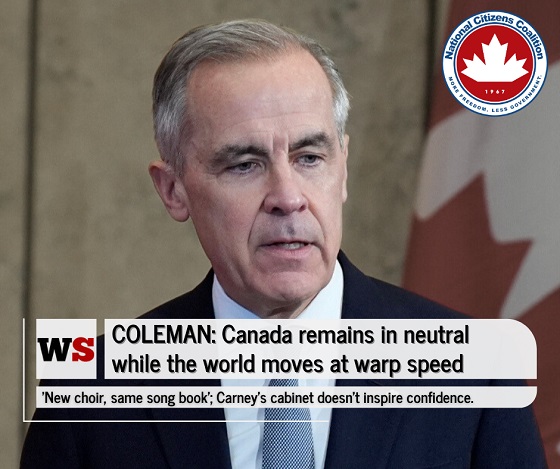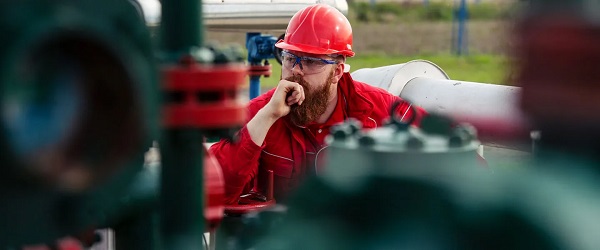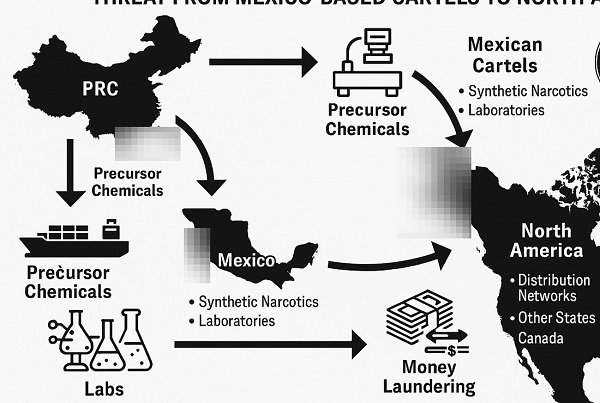Alberta
Canada’s Forestry Sector is World-Class. Here’s Proof.

Most Canadians already understand that Canada’s forest industry is world-class. Compared to most other nations with the largest forest industries, we go above and beyond the standard call to reduce the environmental impacts associated with harvesting trees.
Home to about a third of the boreal forest found globally, Canada currently has several sustainable initiatives in place to make sure our forested lands regenerate accordingly. Through continued research and development, these initiatives are ever-evolving to further advance Canada’s global leadership in sustainable forest management practices.
Here are several facts showing just how Canada’s forest sector is world-class, which should be excellent examples for other nations looking to up their game on sustainable forestry practices in the pursuit of a healthier global environment.
12 Facts on Sustainable Forestry Practices in Canada
#1 – Canada has one of the lowest deforestation rates in the world, with just 0.01% of total deforestation in 2018 – much lower than that seen in the Amazon.
#2 – Canada’s boreal wetland habitats are well protected. In Ontario and Quebec, for example, at least 50% of the wetland-rich northern boreal regions are protected by the provincial government.
#3 – Canada’s forestry sector is investing heavily into reforestation efforts, planting roughly 600 million new trees annually.
#4 – Canada’s forestry sector has reduced its greenhouse gas (GHG) emissions substantially; From 2007 to 2017, the industry dropped energy use by 24% and total fossil GHG emissions by 40%.
#5 – Canadian law requires any disturbed forests by industry must be 100% reclaimed.
#6 – Canada’s forestry sector has committed to help remove 30 megatonnes of CO2 per year by 2030, a substantial amount that will contribute to improving our country’s emissions profile considerably.
#7 – More than 440 million seedlings were planted across Canada in 2018.
#8 – As of 2016, around 200 million of Canada’s 348 million hectares of forests had a long-term forest management plan.
#9 – Today, roughly half of Canada’s forests are certified to third-party standards of sustainable forest management.
#10 – Canada’s boreal forest is largely undisturbed, with 80% of it being relatively untouched and free of industrial disturbance.
#11 – Since 1990, less than 0.5% of Canada’s forested lands have been converted to a non-forest land use.
#12 – Canada will be the first nation in the world to launch a satellite that will specifically monitor wildfires – nothing else.
Sources: Natural Resources Canada, Forest Products Association of Canada
Canada is a Leader in Sustainable Forestry – We Should Be Proud!
The evidence is in, and it’s clear that Canada is a global leader in sustainable forestry practices. Learn more about why this matters by joining our conversations on Facebook, Twitter, and Instagram today – hope to see you there!
Alberta
SERIOUS AND RECKLESS IMPLICATIONS: An Obscure Bill Could Present Material Challenge for Canada’s Oil and Gas Sector

From Energy Now
By Tammy Nemeth and Ron Wallace
Bill S-243 seeks to “reshape the logic of capital markets” by mandating that all federally regulated financial institutions, banks, pension funds, insurance companies and federal financial Crown Corporations align their investment portfolios with Canada’s climate commitments
Senator Rosa Galvez’s recent op-ed in the National Observer champions the reintroduction of her Climate-Aligned Finance Act (Bill S-243) as a cornerstone for an “orderly transition” to achieving a low-carbon Canadian economy. With Prime Minister Mark Carney—a global figure in sustainable finance—at the helm, Senator Galvez believes Canada has a “golden opportunity” to lead on climate-aligned finance. However, a closer examination of Bill S-243 reveals a troubling agenda that potentially risks not only crippling Canada’s oil and gas sector and undermining economic stability, but one that could impose unhelpful, discriminatory measures. As Carney pledges to transform Canada’s economy, this legislation would also erode the principles of fairness in our economic and financial system.
Introduced in 2022, Bill S-243 seeks to “reshape the logic of capital markets” by mandating that all federally regulated financial institutions, banks, pension funds, insurance companies and federal financial Crown Corporations align their investment portfolios with Canada’s climate commitments, particularly with the Paris Agreement’s goal of limiting global warming to 1.5°C. The Bill’s provisions are sweeping and punitive, targeting emissions-intensive sectors like oil and gas with what could only be described as an unprecedented regulatory overreach. It requires institutions to avoid financing “new fossil fuel supply infrastructure” and to plan for a “fossil-free future,” effectively discouraging investment in Canada’s energy sector. To that end, it imposes capital-risk weights of 1,250% on debt for new fossil fuel projects and 150% or more for existing ones, making such financing prohibitively expensive. These measures, as confirmed by the Canadian Bankers’ Association and the Office of the Superintendent of Financial Institutions in 2023 Senate testimony, would have the effect of forcing Canadian financial institutions to exit oil and gas financing altogether. It also enshrines into law that entities put climate commitments ahead of fiduciary duty:
“The persons for whom a duty is established under subsection (1) [alignment with climate commitments] must give precedence to that duty over all other duties and obligations of office, and, for that purpose, ensuring the entity is in alignment with climate commitments is deemed to be a superseding matter of public interest.”
While the applicability of the term used in the legislation that defines a “reporting entity” may be a subject of some debate, the legislation would nonetheless direct financial institutions to put “climate over people”.

There are significant implications here for the Canadian oil and gas sector. This backbone of the economy employs thousands and generates billions in revenue. Yet, under Bill S-243, financial institutions would effectively be directed to divest from those companies if not the entire sector. How can Canada become an “energy superpower” if its financial system is directed to effectively abandon the conventional energy sector?
Delivered to You: It’s Free! Sign Up for the EnergyNow Canadian Energy Focused Newsletter Here
Delivered to You: It’s Free! Sign Up for the EnergyNow US Energy Focused Newsletter Here
Beyond economics, Bill S-243 raises profound ethical concerns, particularly with its boardroom provisions. At least one board member of every federally regulated financial institution must have “climate expertise”; excluded from serving as a director would be anyone who has worked for, lobbied or held shares in a fossil fuel company unless their position in the fossil fuel company was to help it align with climate commitments defined in part as “planning for a fossil fuel–free future.” How is “climate expertise” defined? The proposed legislation says it “means a person with demonstrable experience in proposing or implementing climate actions” or, among other characteristics, any person “who has acute lived experience related to the physical or economic damages of climate change.” Bill S-243’s ideological exclusion of oil and gas-affiliated individuals from the boards of financial institutions would set a dangerous precedent that risks normalizing discrimination under the guise of environmental progress to diminish executive expertise, individual rights and the interests of shareholders.
Mark Carney’s leadership adds complexity to this debate. As the founder of the Glasgow Financial Alliance for Net Zero, Carney has long advocated for climate risk integration in finance, despite growing corporate withdrawal from the initiative. Indeed, when called to testify on Bill S-243 in May 2024, Carney praised Senator Galvez’s initiative and generally supported the bill stating: “Certain aspects of the proposed law are definitely achievable and actually essential.” If Carney’s Liberal government embraces Bill S-243, or something similar, it would send a major negative signal to the Canadian energy sector, especially at a time of strained Federal-Provincial relations and as the Trump Administration pivots away from climate-related regulation.
Canada’s economy and energy future faces a pivotal moment. Bill S-243 is punitive, discriminatory and economically reckless while threatening the economic resilience that the Prime Minister claims to champion. A more balanced strategy, one that supports innovation without effectively dismantling the financial underpinnings of a vital industry, is essential. What remains to be seen is will this federal government prioritize economic stability and regulatory fairness over ideological climate zeal?
Tammy Nemeth is a U.K.-based energy analyst. Ron Wallace is a Calgary-based energy analyst and former Permanent Member of the National Energy Board.
Alberta
Don’t stop now—Alberta government should enact more health-care reform

From the Fraser Institute
It’s unusual to see a provincial government take on health-care reform. But not so in Alberta, where major reforms have been underway for almost a year. The province has long struggled with lengthy waits for non-emergency care and a majority (58 per cent) of Albertans last year were unsatisfied with the government’s handling of health care.
And who could blame them?
The median wait last year in Alberta was 19.2 weeks to see a specialist (after getting a referral from a family doctor) followed by the same amount of time to receive treatment. This combined 38.4-week wait marked the longest delay for non-emergency care in Alberta since data were first published more than 30 years ago. Also last year, an estimated 208,000 patients waited for care in Alberta. These waits are not benign and can result in prolonged pain and discomfort, psychological distress, and can impact our ability to work and earn money.
In fact, according to our new study, last year health-care wait times in Alberta cost patients $778 million—or more than $3,700 per-patient waiting. This estimate, however, doesn’t include leisure time after work or on weekends. When this time was included in the calculation, the total cost of these waits balloons to more than $2.3 billion or around $11,000 per patient.
Again, to its credit, the Smith government has not shied away from reform. It’s reorganized one of province’s largest employers (Alberta Health Services) with the goal of improving health-care delivery, it plans to change how hospitals are funded to deliver more care, and it continues to contract out publicly funded surgeries to private clinics. Here, the government should look at expanding, based on the success the Saskatchewan Surgical Initiative (SSI), which helped increase that province’s surgical capacity by delivering publicly funded surgeries through private clinics and shortened the median health-care wait from 26.5 weeks in 2010 to 14.2 weeks by 2014.
The SSI also “pooled” referrals in Saskatchewan together and allowed patients to choose which specialist they wanted to see for treatment, and patients received estimates of how long they would wait before choosing.
In Alberta, however, family doctors still refer patients to one specific specialist at a time yet remain potentially unaware of other appropriate doctors with shorter waits. But if Alberta also put specialist wait lists and referrals into one list, and provided updated wait times information, a family doctor could help patients choose a specialist with a shorter wait time. Or better yet, if Albertans could access that information online with an Alberta health card, they could make that decision on their own while working with their family doctor.
Make no mistake, change is in the air for health care in Alberta. And while key policy changes are now underway, the Smith government should consider more options while this window for reform remains open.
-

 Banks2 days ago
Banks2 days agoLegal group releases report warning Canadians about central bank digital currencies
-

 Business2 days ago
Business2 days agoThe Liberal war on our cost of living lives on
-

 Alberta1 day ago
Alberta1 day agoWhy Some Albertans Say Separation Is the Only Way
-

 COVID-192 days ago
COVID-192 days agoWill Chris Barber be jailed for peacefully protesting? Court to decide soon
-

 International2 days ago
International2 days agoWork underway – Trump’s Golden Dome defense shield to be done within four years
-

 espionage2 days ago
espionage2 days agoCanada’s Missing Intelligence Command: Convoy Review Takes on New Relevance After FBI Warnings
-

 Bruce Dowbiggin13 hours ago
Bruce Dowbiggin13 hours agoU.S. Voters Smelled A Rat But Canadian Voters Bought The Scam
-

 Business1 day ago
Business1 day agoNew fiscal approach necessary to reduce Ottawa’s mountain of debt








